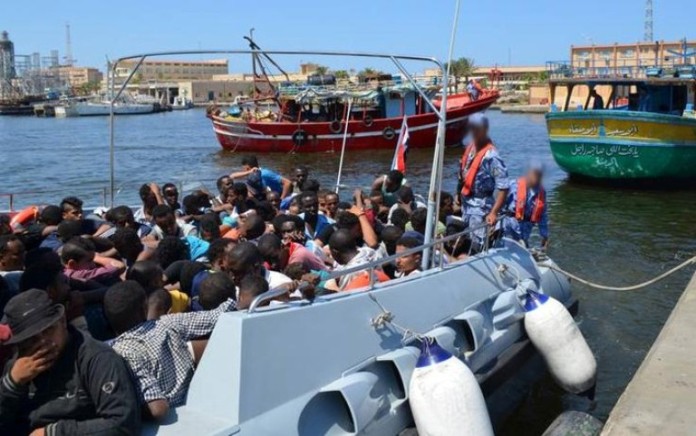Tough European borders push African migrants towards the US

Europe’s toughened borders are prompting migrants to switch focus to the United States, but their trek is being thwarted in central America, where a bottleneck has formed, according to the International Organisation for Migration.
In Costa Rica, a makeshift camp has sprung up housing hundreds of Africans and Haitians.
Elsewhere in the country, smaller numbers of Afghans and Pakistanis are biding their time to head north.
They are being stalled by Nicaragua, which closed its border eight months ago to migrants without visas, to stop the flow of thousands of US-bound Cubans through its territory.
But that closed-door policy has also trapped what are called extra-continental migrants — those coming from outside Latin America. There are an estimated 2,000 such migrants in Costa Rica.
Their number has increased from March since the EU did a deal with Turkey to send back migrants trying to reach Europe through Greece and eastern European states built barriers across their borders.
“We have documented cases of people telling us they chose this route to the US or Canada because they felt that getting to Europe was dangerous, that it was very difficult to enter Europe or the conditions in Europe weren’t what they hoped for,” said IOM’s representative in Costa Rica, Roeland de Wilde.
“Most of them seem to be coming through from Brazil and other South American countries facing declining economic situations.”
Pakistanis and Afghans, accounting for around 10 per cent of the migrants, are well-organised and often lay up in basic hotels, de Wilde said.
Most of the ones saying they are from Africa are making do with plastic sheets strung up as shelter by the roadside. Not all of the latter are extra-continental, although many pretend to be.
“More than half the migrants presenting themselves as Africans are from Haiti, an impoverished Caribbean country with a predominantly black population that speaks French,” de Wilde said.
“They say they are Congolese, but when questioned, they don’t know from which part of Congo they come from.”
“Sometimes they say Kinshasa or Brazzaville, mixing up one Congo for the other. When asked which ethnicity they belong to, they have no idea.”
UNCONDUCIVE ENVIRONMENT
The DR Congo, whose capital is Kinshasa, and the Republic of Congo, ruled from Brazzaville, are neighbours.
While both use French, the former is riven by ethnic violence in the east, increasing the odds of emigrants from there getting asylum.
In northern Costa Rica, close to the border with Nicaragua near the town of Penas Blancas, African and Haitian migrants try to get by in rudimentary conditions while hoping they would be allowed to continue north.
“We can’t stay here. No human being can live in these conditions,” complained Alin Treme, a 31-year-old who said he was from “Congo”.
“It rains every day. We’re always in mud. The water pours into the tents and we sleep soaked,” he said in a mix of Portuguese, French and Spanish.
Near him, a man cut garlic under the burning sun, preparing soup for his wife and one-year-old son.
Trash from the camp piled up not far away, raising a cloud of stink, flies and mosquitos.
“Our destiny isn’t in Costa Rica, Nicaragua or Honduras. Why won’t they let us pass?” asked Wilson Joseph, a migrant who said he was from Senegal though he spoke Spanish with an accent from the Dominican Republic, Haiti’s neighbour.
Many in the camp claiming to come from the DR Congo or Senegal are unable to give precise details about those countries.
They often communicate in languages and accents suggesting they are Haitians attempting to hide their nationality.
AFP